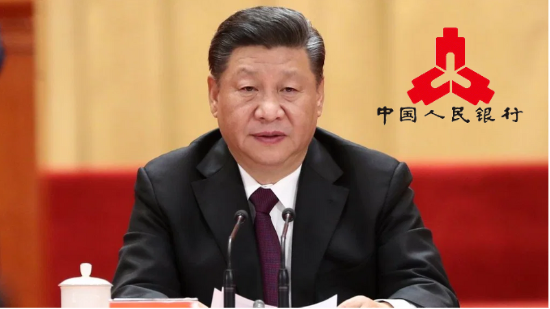China was able to get away with anything before the pandemic due to the reason that it was subtly investing and buying stakes across the globe through its central bank. Inundated with Chinese Yuan, the countries didn’t bat an eye against China’s hegemonic policies. The pandemic has finally woken up the world as the countries are increasingly taking steps to curtail Chinese Foreign Direct Investment as China true to its characteristics, is now making predatory purchases at a time when the world battles a China-made pandemic.
China’s Central Bank, People’s Bank of China (PBoC) holds stakes in various listed companies and strategically makes below the radar investments as China buys less than 1% stake which is the threshold limit for open disclosures by companies.
Alarm bells were sent ringing when the news of PBoC buying a 1.01% stake worth Rs 3,100 crore in HDFC Bank came out. However, PBoC investments in India are not limited to HDFC alone. The Chinese Central Bank also holds a 0.32% stake in the cement giant, Ambuja Cement worth Rs 122 crore. It also enjoys a 0.43% stake in Piramal Enterprises worth Rs 137 crore.
It is reported that PBoC has a stake in various other companies which are strategically important to the country’s economy, however, the investments are not in the public domain as they fall below the 1% threshold limit. Since the last two years, the modus operandi of the Chinese Central Bank is to invest in companies involved in key sectors and hence, are crucial to the country’s economy.
According to Chinese experts, China follows an age-old tactic of “loot a burning house” which sees China undertaking predatory purchases in stressed companies when the valuations and subsequently the stock prices are at a historic low.
China made pandemic has presented the perfect opportunity as not just India, but across the globe, China is indulging in predatory buying.
“Chinese companies are emerging as prominent players and investors, in areas ranging from infrastructure and energy to newer sectors of interest such as technology startups and real estate,” said Ananth Krishnan.
China has also been keenly targeting Indian startups as Chinese companies have invested in the likes of Zomato, Swiggy, Byju’s, Ola, Flipkart to name a few.
The aggregate Chinese investment in India stands at a whopping $26 billion with a further $15 billion investment planned through key infrastructure projects. Everything was going smooth until the world was hit by the Wuhan coronavirus pandemic and things changed quickly.
The move by Chinese Central Bank to buy a stake in India’s HDFC bank saw the government tweak its FDI rules as it decided that SEBI, the capital market regulator of the country, will now scrutinise all investments coming from China and Hong Kong.
SEBI fears that the Chinese investments might be coming from a sovereign, as it is a general practice by various governments to allocate funds to investment managers who design investment strategy for them and in such situations, it seems that investment house owns the investment but, the real control lies with sovereign- the ruling regime of that country.
The custodian companies, to whom SEBI has asked for the details of UBOs of investments from China and Hong Kong, maintain data (like address and passport details) of investors owning 10 per cent or above in and FPI as investment above this limit is generally categorised as ‘high risk’, especially, if UBO is based in not so friendly countries like China or Pakistan.
To put things in perspective, according to GlobalData, from January to April 2020, China announced 57 acquisitions and outbound mergers worth the US $9.9 billion with 145 outbound investments totalling around $4.5 billion. This nothing but a hostile takeover which took place as the world battled China made pandemic.
Hence, many European countries, including Italy, Spain and Germany tightened their FDI rules to prevent a hostile takeover of their companies by Chinese firms. Spain has capped the FDI limit in general companies at 10 per cent. Italy has announced new rules for investments in strategic industries and completely shunned the takeover of such companies. Germany, too, has strengthened FDI laws to make foreign takeover harder.
It was all smooth sailing for the Chinese Central Bank as it stealthily acquired stakes in key companies across the globe. The pandemic has changed all of them as the countries are now taking punitive steps against Chinese investments which will massively hit the members of the Chinese Communist Party.

